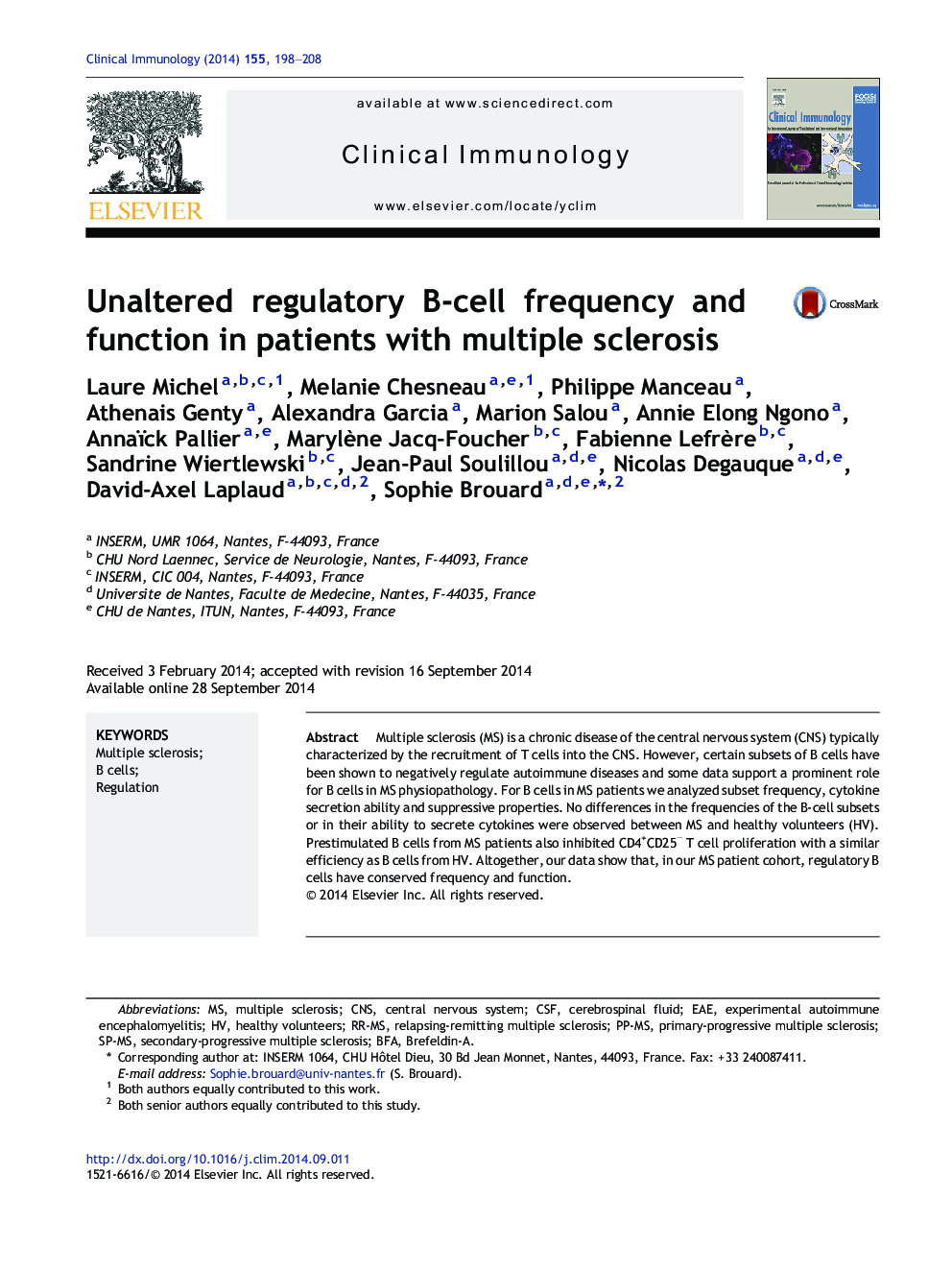| Article ID | Journal | Published Year | Pages | File Type |
|---|---|---|---|---|
| 3256861 | Clinical Immunology | 2014 | 11 Pages |
•Regulatory B cells from HV and MS patients inhibit CD4+CD25− T cell proliferation.•The mechanism of this inhibition is contact-dependent.•No differences in B cell cytokine secretion were observed between MS and HV.
Multiple sclerosis (MS) is a chronic disease of the central nervous system (CNS) typically characterized by the recruitment of T cells into the CNS. However, certain subsets of B cells have been shown to negatively regulate autoimmune diseases and some data support a prominent role for B cells in MS physiopathology. For B cells in MS patients we analyzed subset frequency, cytokine secretion ability and suppressive properties. No differences in the frequencies of the B-cell subsets or in their ability to secrete cytokines were observed between MS and healthy volunteers (HV). Prestimulated B cells from MS patients also inhibited CD4+CD25− T cell proliferation with a similar efficiency as B cells from HV. Altogether, our data show that, in our MS patient cohort, regulatory B cells have conserved frequency and function.
